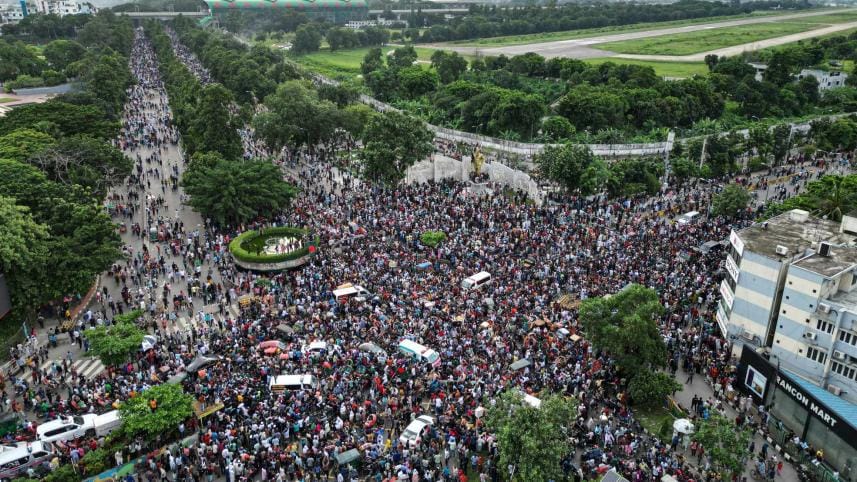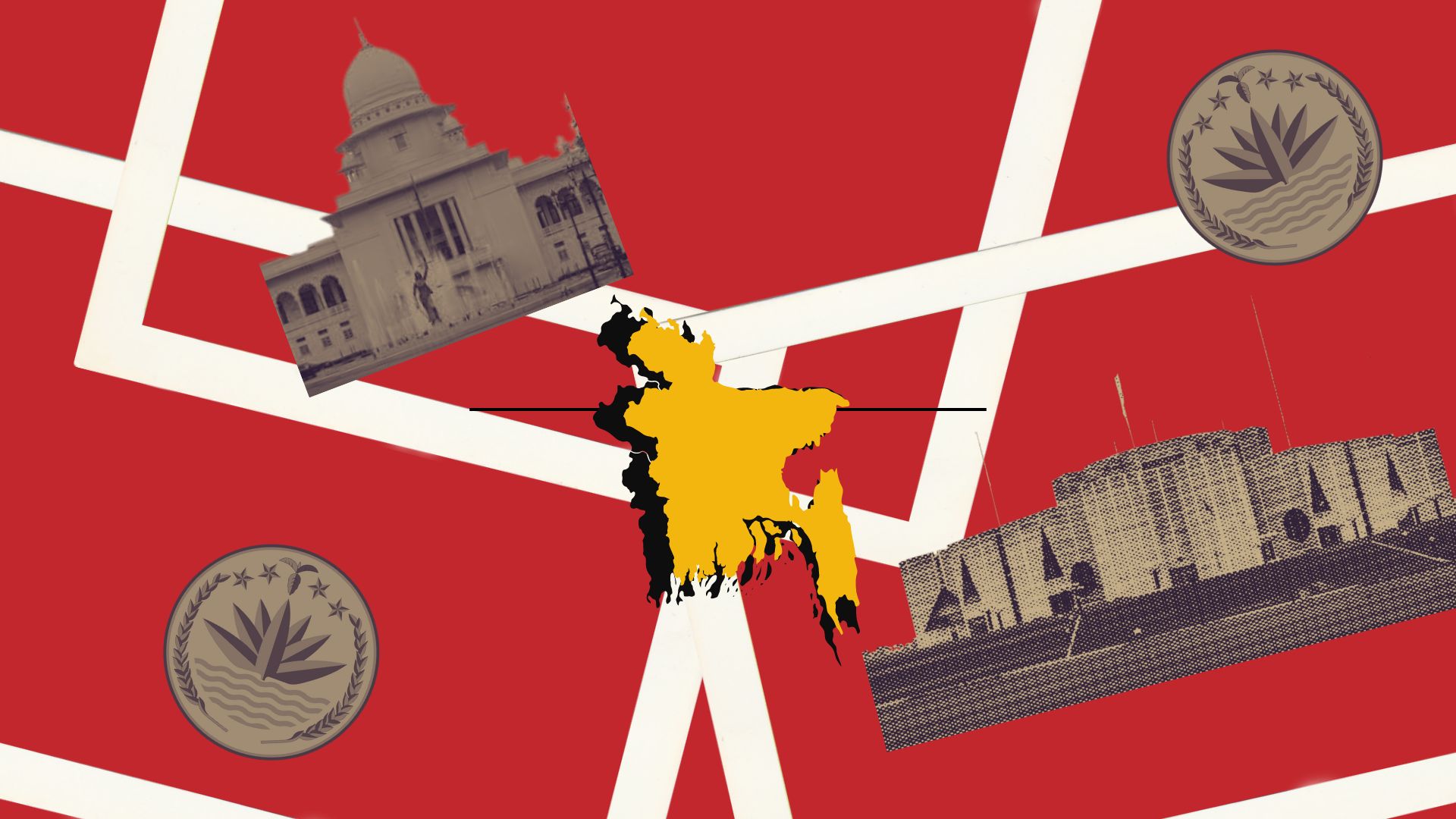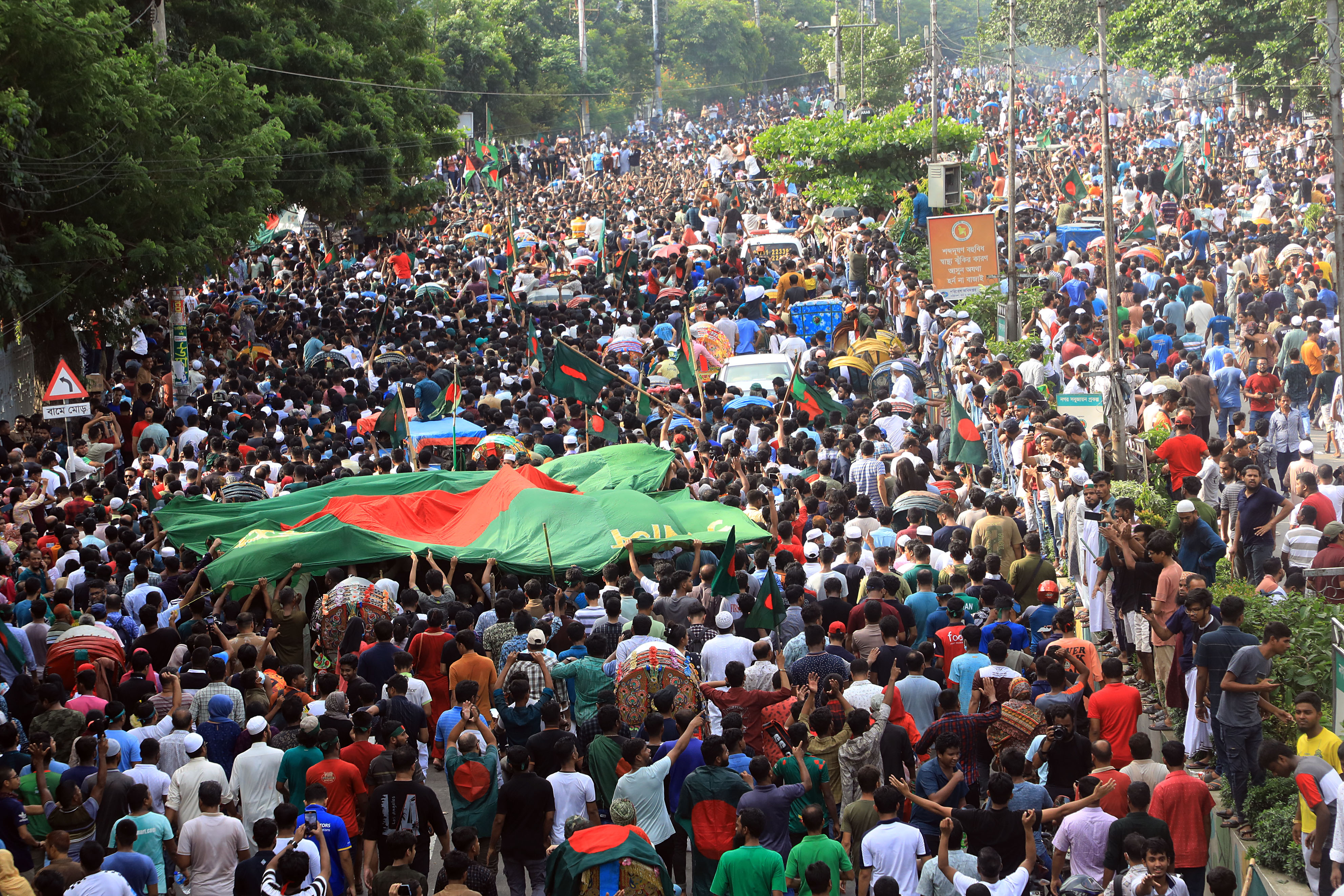We must strengthen our institutions to preserve democracy

Bangladesh has made history by overthrowing Sheikh Hasina's regime, which was marked by incredible brutality towards its own people for the last 15 long years. Many Bangladeshi Americans could not have imagined this saga would be written in such a breathtakingly ruthless fashion, resulting from four weeks of popular uprising. The power of the people that toppled her rule was beyond our wildest imaginations.
We, Bangladeshi Americans, spent sleepless nights over the past few weeks, getting updates from friends and families, and monitoring the situation through online news. The news of the notoriously defiant former Prime Minister Sheikh Hasina resigning and fleeing the country felt almost surreal. However, we eventually came to terms with the new reality and the relief that the mass uprising had finally succeeded, and the carnage stopped.
The situation remains extremely fluid. Many Bangladeshi Americans have voiced concerns about whether the revolution will be preserved by a new generation of leadership that will serve as accountable leaders to the constitution and their voters, or whether we will revert to the old patterns of repression, vengeance, and totalitarianism.
To preserve democracy, we must strengthen our governmental bodies—the executive, the legislative, and the judicial branches. In a true democracy, these establishments develop resilience against attacks from political parties. The endurance of these institutions in American politics remains the vital lifeline for continued freedom in the country. Even in the US, these governing bodies do come under relentless attacks by political forces. Yet, they are robust enough to withstand such assaults and remain fundamental to democracy. Politics can be corrupt, unhinged, selfish, and immoral, but democratic institutions refuse to bow to political pressures. Despite relentless attacks on these entities, they strive to play by the rule.
Public offices must have public trust, and to do so our institutions should be built bottom up so that every citizen is treated fairly and enjoys a fair share of rights and responsibilities. Bangladesh must undergo massive political and constitutional reforms. We must embrace electoral reforms and create and enhance independent bodies to investigate government conduct. We should promote civic engagement and education to strengthen anti-corruption measures, reform political parties, and improve human rights protections. We must not politicise our sacred institutions ever again.
In rebuilding the nation, we must preserve and respect the wishes of the young generation who made the ultimate sacrifices to achieve this "victory." Our policymaking must reflect their opinion, giving them the forefront in building the new generation of public servants.
We must also foster tolerance of diverse opinions, which is the lifeline of a vibrant democracy. However, it is disheartening to see people burned alive and businesses destroyed across the country post-revolution. We must not treat people critical of our policies as enemies and seek retribution for political disagreement. It is our obligation to safeguard the lives and liberties of those who support the fallen regime. Nearly 50 years into independence, we must not divide the country into pro-liberation and anti-liberation groups, because our freedom fighters did not sacrifice their lives for mean-spirited politics and material gains.
The time has come to rebuild the country on tolerance and democratic principles. The time has come to let people form their government through their voices and votes. Their right to freedom of expression must be protected at any cost. We must not use state apparatuses to deal with people's discontent.
The end of Sheikh Hasina's regime is an example of the cruel destiny of a repressive government. People have spoken, and the leadership must listen if we do not want history to repeat itself. All public officials, whether appointed or elected, must be held accountable when they violate their oaths.
To conclude, let us allow the rekindled spirit of the Liberation War to build a new Bangladesh by forming robust public institutions. We salute our heroes who made the ultimate sacrifices with their lives and faced imprisonment and forced disappearances to write this glorious new chapter.
ABM Uddin is analyst for the senate democratic office at the Florida Legislature. He specialises in policies and politics around healthcare, ethics, and elections.
Views expressed in this article are the author's own.
Follow The Daily Star Opinion on Facebook for the latest opinions, commentaries and analyses by experts and professionals. To contribute your article or letter to The Daily Star Opinion, see our guidelines for submission.




 For all latest news, follow The Daily Star's Google News channel.
For all latest news, follow The Daily Star's Google News channel. 

Comments